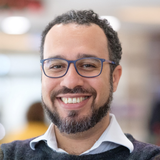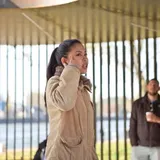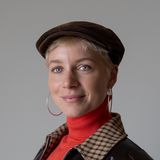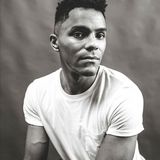In this three-part Designing Cities for All: RE-generation series RE-imagining Borders , DCFA Fellows Joris Lechêne and Lucia Kula delve into the concept of made-up boundaries, borders and binaries, and their implications in the world. How does thinking in dualisms influence our public spaces, systems and (hi)stories? Where does the concept of the (literal or metaphorical) border originate from, and who has the power to install and enforce them? And why is it so important to break away from this simplistic worldview?
The third and last episode of this series looks into the Borders vs. Bodies dichotomy. The borders that we are born within or outside of, follow us around for the rest of our lives, be it through for instance dehumanization of refugees, apartheid or fortress conservation . We string along our nationalities and other parts of our identities – and they result in either privilege or persecution.





About the DCFA Fellows
Joris Lechêne is a Franco-British social communicator who has lived and worked in five countries and three continents. Black, queer, foreigner and neuro-divergent, Joris has spent most of his adult life disentangling his multiple marginalized identities in a world that simultaneously considers him both an out- and insider. As a Social Media Influencer and Anti-racism, Bias and Privilege trainer, he draws on his experience with the combination of the various identities at the intersections of ‘race’, neuro-diversity, class and sexuality. Joris uses this unique vantage point from which to communicate and explain social concepts and speak up on the topics of systemic inequalities, discrimination and bias.
Dr. Lucia Kula , SFHEA is an International Lawyer and Lecturer in Law and Gender at SOAS, University of London. Her research adopts an interdisciplinary approach to law, borders, gendered violence, and decolonization. She is a former refugee from Angola and writes on law and forced displacement issues and identity in the African diaspora, with a focus on critically analyzing the experiences of women and other marginalized communities. She convenes the Gender Studies and Law Programme, and she is the Widening Participation Lead for the School of Law within SOAS. She also consults for other Higher Education institutions in the UK on Race Equity and Decolonising The Academy.
About the speakers
Janelle Sallons is a psychologist, specialized in Clinical Neuropsychology and Organizational Psychology. As someone with personal experiences in navigating life and work while black, female, chronically ill and disabled, she has dedicated herself to counsel disabled and/or socially and economically disadvantaged adolescents and young adults. As a professional DEI(B) trainer and counselor Janelle offers health care and educational professionals insights on the importance of being more inclusive and culturally sensitive with their services and how to establish more diversity and inclusion within their institutions. Janelle is also an Inclusion & Diversity Advisor for the Municipality of Amsterdam.
About Designing Cities for All: RE generation
Over the first two years of Designing Cities for All (DCFA), we’ve learned about exclusion by design and the (re)design of inclusive cities. Along the journey, a certain question kept popping up: what exactly does ‘for all’ entail? After focusing mostly on the ‘who’ over the past two years, DCFA is rebooting as Designing Cities for All: RE-generation . This way around, the series is also incorporating the ‘what’ by looking through the fresh lens of regenerative design . This emerging field might very well be a promising answer to the challenges of our time, as it focuses on the design of products, services, systems and processes that lead to both social and ecological recovery and that keep the systems healthy.
About apartheid


Over de hele wereld zet het World Wide Fund For Nature (WWF), met het Wereld Natuur Fonds (WNF) als Nederlandse tak, zich in voor bedreigde diersoorten. Een nobel doel, maar niet zonder de nodige offers. Want waar een dier moet worden gered, komt soms een mens in gevaar. Zo ook in de Republiek Congo, waar inheemse bewoners van de Baka-stam werden verjaagd uit het gebied waar ze al honderden jaren in harmonie met de natuur leefden - soms zelfs met geweld. Heeft deze wereldverbeterende NGO neokoloniale trekjes? Je ziet het in de laatste aflevering van Pak De Macht.

The deliberate transfer of all Maa-speaking people into the dry ‘Southern Maasai Reserve’, which blocked them from accessing various water points, not only marginalised them, but turned them into objects of gaze as they struggled to make sense of the new territories.

Fortress conservation is rooted in the long-held assumption that humans, with our ecologically destructive anthropogenic activities, are the problem. By consequence, the solution is therefore to exclude humans from interacting with nature, so as to restore the “natural state” of the environment, untarnished by human forces. While seemingly logical, this assumption is deeply problematic.







